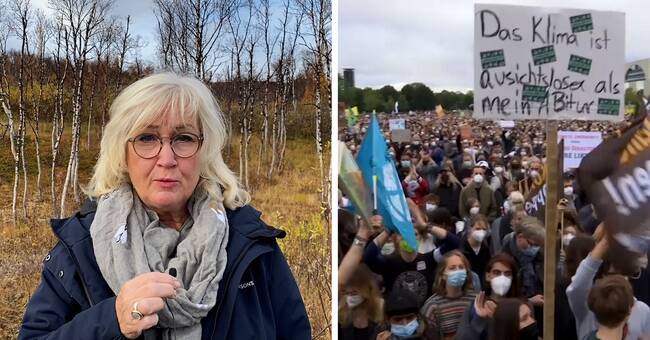Tyskland har gjort en vänstersväng med gröna förtecken. Över 40 procent av väljarna rankade klimatet som den viktigaste valfrågan. Chocken över att nära 200 tyskar omkom i sommarens störtfloder fick klimatkrisen att hamna högst på listan. Klimatrörelsen ”Fridays For Futures”, grundad av svenska Greta Thunberg, är också långt mer inflytelserik i Tyskland än i Sverige. De ungas vrede har inte gett de stora partierna någon ro. Budskapet att klimatfrågan kräver politisk handling nu, inte sen, har hamrats ut vecka efter vecka.
The Greens, who have doubled their number of voters since 2017, have a strong negotiating position.
They have become a broader green popular movement and have attracted several voters since the moralism within the party, where meat-eating was previously condemned, for example.
Today, they are careful to point out large companies as responsible for the climate crisis, not individuals.
Difficult government negotiations
Now difficult government negotiations await.
Among other things, the German Greens demand a faster decommissioning of coal power in order to be part of a co-operation party.
But the climate negotiations are more complicated than that.
The green transition has already begun in Germany and holds great tensions.
The coal industry has 2038 as its end date, and nuclear power is being phased out.
At the turn of the year, Germany introduced a new system of emissions trading aimed at transport to ensure that emissions from that sector go down.
This is expected to lead to higher petrol prices.
The German government has taken steps to ensure that the change does not lead to further polarization between the coal districts and the richer cities.
Over a 20-year period, the German federal states of North Rhine-Westphalia, Brandenburg and Saxony-Anhalt will receive 1.3 billion euros annually from a green conversion fund to make settlement more socially just.
In addition to this, money is being invested in infrastructure projects and the relocation of 5,000 government service jobs to the affected regions.
Divided German voters
But German voters are still divided.
The fear of losing jobs in the fossil fuel sector is great.
Despite the adjustment fund, it is difficult for middle-aged coal miners to find new jobs.
The new green sector prefers to employ young people who are trained as wind power technicians or installers of solar panels.
When the Greens now enter government negotiations, the balancing act that has become the big headache of the green parties awaits.
If you are too uncompromising in your green policy, you can, like the Norwegian Green Party, see how voters are scared away.
The Swedish Green Party, on the other hand, has hardly been rewarded by the voters for being a very compromising support party.
So the question is whether the German Greens can find the golden mean.
Long green list of requirements
In the last election, the Greens chose to drop the government negotiations because they did not succeed in getting their demands heard.
Now they went to the polls with demands to invest 50 billion euros annually in a green conversion that, among other things, will not include highway construction.
The list of requirements will be longer anyway.
The German election winner Olaf Scholz will go to great lengths to bring the German Greens into the government.
Perhaps Europe's largest economy can show the way to how to reconcile the discharge of its emissions at the pace required by science to secure jobs and make the transition socially just.
It is certain, however, that many other nervous heads of state and government in the EU will follow Germany's path closely.

